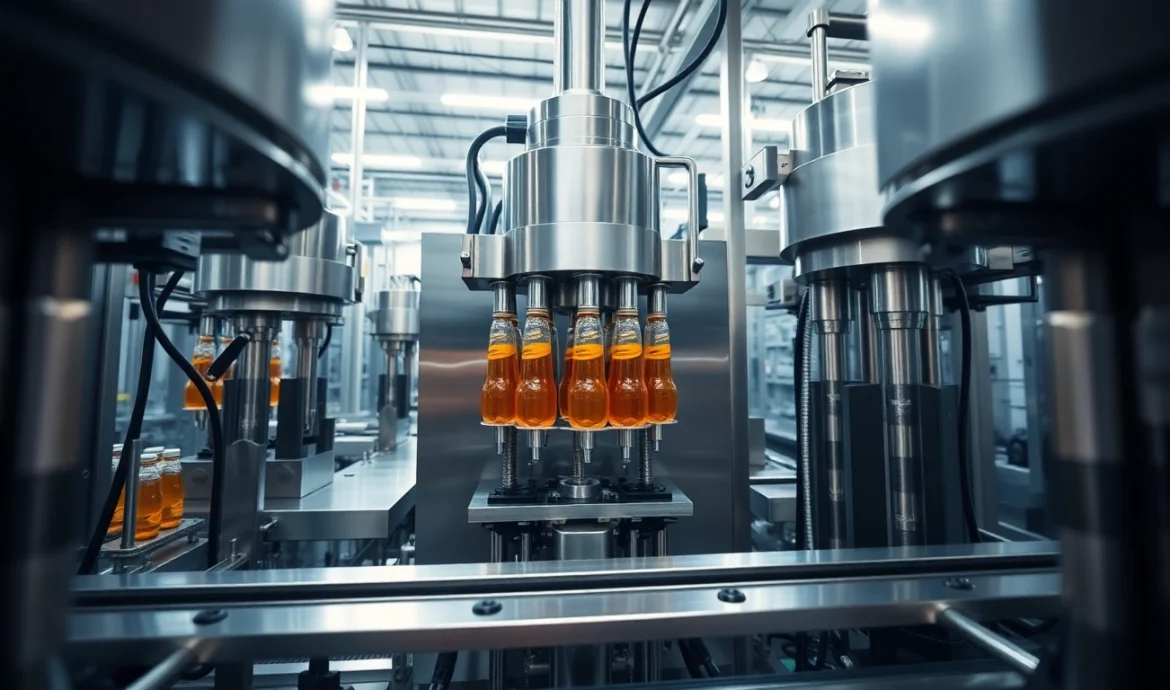Understanding Filling Machines
What Are Filling Machines?
Filling machines are specialized equipment designed to dispense products into containers of various shapes and sizes. They play a crucial role in many production processes across multiple industries, including food and beverage, pharmaceuticals, cosmetics, and chemicals. By automating the filling process, these machines not only ensure high precision and speed but also reduce labor costs and minimize the risk of contamination.
Types of Filling Machines Available
There is a diverse array of filling machines available, each tailored to meet specific operational needs. The common types include:
- Volumetric Filling Machines: Measure the volume of liquid to be dispensed, ensuring uniform quantity in each container.
- Piston Filling Machines: Utilize a piston mechanism to accurately fill liquids or semi-liquids, often used for thick products.
- Gravity Filling Machines: Rely on gravity to dispense liquids, suitable for thin fluids typically found in food and beverage industries.
- Pressure Filling Machines: Use pressure to push the liquid into containers, supporting a faster filling process for thick liquids.
- Automatic and Semi-Automatic Machines: Automatic machines require minimal operator intervention, while semi-automatic machines offer flexibility for varying production levels.
Applications Across Industries
Filling machines find applications across various sectors:
- Food and Beverage: Used for bottling juices, sauces, and dairy products.
- Pharmaceuticals: Essential in filling vials and syringes with liquid medications.
- Cosmetics: Used for dispensing lotions, creams, and other personal care products.
- Chemical: Applied to fill containers with liquids ranging from solvents to industrial chemicals.
Choosing the Right Filling Machine Supplier
Key Factors to Consider
When selecting a filling machine supplier, it’s essential to consider a few key factors:
- Product Range: A good supplier should offer a variety of machines tailored to different applications. This ensures that businesses can find the right machine suited to their specific needs.
- Quality and Durability: The machines should be made from high-quality materials to withstand regular use and potential wear and tear.
- Customization Options: Look for suppliers who can provide machines tailored to specific production requirements.
Comparing Features and Benefits
It’s crucial to compare the features of different filling machines, assessing benefits such as:
- Speed: The filling rate can significantly impact productivity.
- Precision: Tight tolerances in filling reduce product loss and ensure customer satisfaction.
- Ease of Use: User-friendly interfaces and simple operational procedures enhance efficiency.
Evaluating Supplier Reputation
Researching a supplier’s reputation can save time and resources in the long run. Look for:
- Customer Reviews: Feedback from previous or existing customers can provide insights into service quality.
- Industry Experience: A supplier with a longstanding presence in the industry may deliver better support and expertise.
- After-Sales Support: Robust support makes it easier to resolve issues and perform routine maintenance.
Benefits of Using Advanced Filling Machines
Increased Efficiency in Production
Investing in advanced filling machines leads to a significant increase in production efficiency. By automating the filling process, companies can achieve faster turnarounds. For example, in high-demand industries like food and beverage, efficient filling operations can prevent bottlenecks that hold up the entire production line, ultimately improving overall output.
Cost-Effectiveness Over Time
While the initial investment in advanced filling machines might be substantial, the long-term savings are much greater. With improved accuracy, businesses reduce waste and minimize the costs associated with rework and product recalls.
Adaptability to Different Products
Modern filling machines often come with adjustable features, allowing them to be configured for different products with minimal downtime. This flexibility is crucial for businesses that handle a diverse range of products.
Common Challenges in Filling Operations
Identifying Production Bottlenecks
Every production line faces challenges, and identifying bottlenecks is critical to maintaining efficiency. Regular audits and performance reviews can help pinpoint areas where operations slow down. Utilizing software for monitoring can provide real-time data, allowing for immediate corrective measures.
Maintenance and Downtime Issues
Filling machines require regular maintenance to prevent unexpected breakdowns that can halt production. Establishing a routine maintenance schedule and implementing predictive maintenance technologies can significantly reduce downtime.
Compliance with Industry Standards
Adhering to industry regulations and standards is paramount. Compliance ensures product safety and quality, and failing to meet these standards can attract substantial penalties. It’s important for companies to stay updated on industry requirements and ensure that their filling machines meet these specifications.
Future Trends in Filling Technology
Automation and Smart Technology Integration
The future of filling machines lies in automation and smart technologies. IoT-integrated machines capable of self-monitoring and adjusting operations in real-time are becoming more common. These technologies enhance operational efficiency, reduce human error, and provide data analytics for ongoing improvement.
Sustainability Practices in Packaging
With growing concerns about the environment, filling machine suppliers are increasingly adopting sustainable practices. This includes machinery designed to reduce waste, lessen energy consumption, and utilize eco-friendly materials. Companies are encouraged to seek suppliers who align their operations with sustainability goals.
Innovations in Filling Processes
As industries evolve, so too do filling processes. Innovations such as flexible filling machines that can handle multiple product types, and improved cleaning and sanitation methods help streamline operations while maintaining high safety standards.
In conclusion, selecting a Filling Machine Supplier is a vital decision that impacts production efficiency, cost management, and product quality. By understanding the types of filling machines available, factors to consider when choosing a supplier, and the benefits of advanced machinery, businesses can position themselves for success in their respective industries.

Leave a Reply